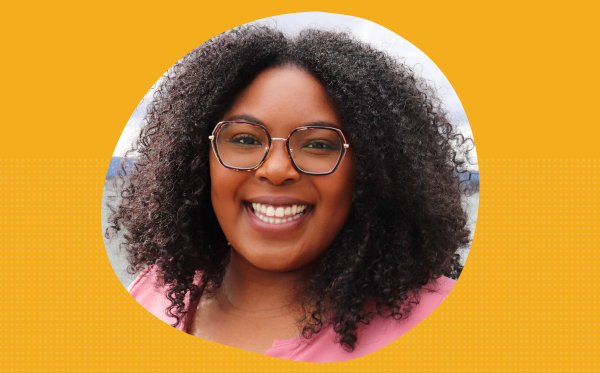
We’re excited to be featuring Jasmine Tolbert, Vice President of People and Culture at YWCA Clark County, in this week’s Women’s History Month spotlight. Jasmine is a southwest Washington community champion who is committed to uplifting racial equity and liberating marginalized communities, both through her professional career and volunteer work. Read Jasmine’s spotlight interview below:
You have been a leader in Clark County’s social justice realm for years, what or who inspires your work on a daily basis?
I aspire to create a better experience for the next generation and ensure that the community they are a part of is somewhere where they can see themselves thriving. I want folks to enter the SW Washington community and see themselves able to pursue whatever they want and not have barriers related to systemic oppression be an obstacle. I’m inspired by the resiliency of my ancestors and how they tirelessly fought, knowing they may not see the fruits of their labor but that those after them will experience it; I find that mindset to be incredibly altruistic, and the incredible work they put in inspires me to continue on the track they laid for me.
Is there a specific program at the Clark County YWCA that you are really proud of? How have you seen it impact your community?
I have been a fan of YWCA Clark County for years, it has impacted my life personally, and it’s been stellar to serve them over the years as a volunteer, board member, and currently, as a staff person that supports staff doing phenomenal work; to choose one program is challenging. Although one of our newest programs is our Prevention Program, this program excites me because it formalizes the work we’ve been doing for years. They focus on working with our youth to build healthy relationships by shifting beliefs, practices, and culture around consent, boundaries, and oppression. Seeing how our youth are applying these principles makes me so hopeful for the future of our community.
Community work is incredibly fulfilling but comes with constant challenges that require a lot of energy. Do you have any advice or ‘self-care’ tips for those involved in this type of work?
I promote taking time off and setting boundaries in my day job and volunteerism. We can get lost in the world of social justice because the issues in our community can feel never-ending, so we must pace ourselves and remember to create space for recovery time and joy. I surround myself with great leaders that tell me things like, “It’s okay to take today off and focus on your needs for the moment; there will be plenty of injustice to fight when you come back; you can’t pour into the community from an empty cup” and another leader that reminds me that “moments of joy and rest are a part of resiliency.” I try to root myself with this advice and create and hold my boundaries to help me pace myself in this incredible work.